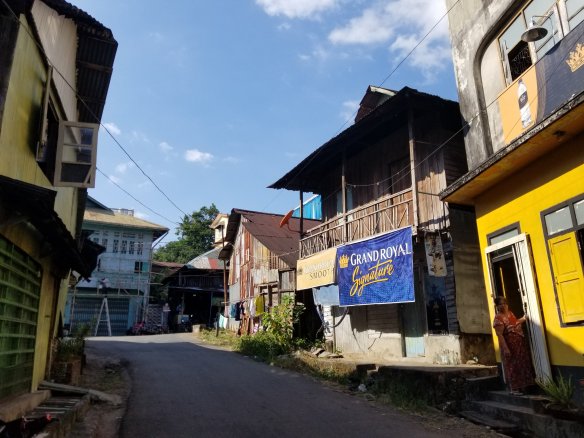It’s no secret that I have a (not-so-secret) long-distance crush on the city of Istanbul. Recently, I ran across the passenger list for my grandmother’s passage to the US on the SS Themistokles on 27 Jan 1915.
My World History is splotchy at best, so my best assumption is that they fled the wrong part of the world at the right time… Gallipoli was mere months away, WWI was still raging in Europe. The US was opening its arms to immigrants who brought innovators and craftsmen and laborers to its shores. They travelled from Jaffa, through Piraeus (and through Cleveland apparently), to eventually settle in Brooklyn. Country of origin at the time (though technically Palestine): Turkey.
So maybe it’s in my blood.
Fast-forward 100+ years and I’m making a hodge-podge breakfast sandwich with what I’ve found in my fridge and pantry shelves: Persian cucumbers, pita bread, some red pepper spread from a jar I picked up in a market somewhere, avocado, smoked herring… I have a momentary and wistful flashback to a fish sandwich under a pop-up tent by the banks of the Golden Horn, in the Eminönü neighbourhood, across from the spice market, this side of the Galata Bridge.
More than New York City, more than Boston, this place calls me.

Balık Ekmek is common street food here, it’s fresh grilled fish served on a hunk of fresh bread with lettuce and onions and lemon juice if you want it as a sauce. It’s not fancy, but it is a simple kind of wonderful. The vendors walk around touting cups of pickles with fermented cabbage and pickle juice that’s meant for drinking. Even for one who likes pickles, it’s an acquired taste.
As much as the taste and freshness of the mackerel is the destination, what completes the experience and makes one’s senses come alive are the contrasts and interminglings here: the sounds and the bustle of the waterfront, the smells of the roasting corn and chestnuts mixed with the salty-ish city air, the colours and textures of the fabrics, the redness of the Turkish flag.
I’m daydreaming this morning: an ode to a mackerel sandwich, perhaps. The spring is trying to bust through here. And as a fairly dull and dreary winter comes to a close, I feel that familiar tug to the east, a restlessness in my legs to go adventuring, a void in my spirit where spice markets and lutes and zithers and magic carpets seep into my dreams.



















